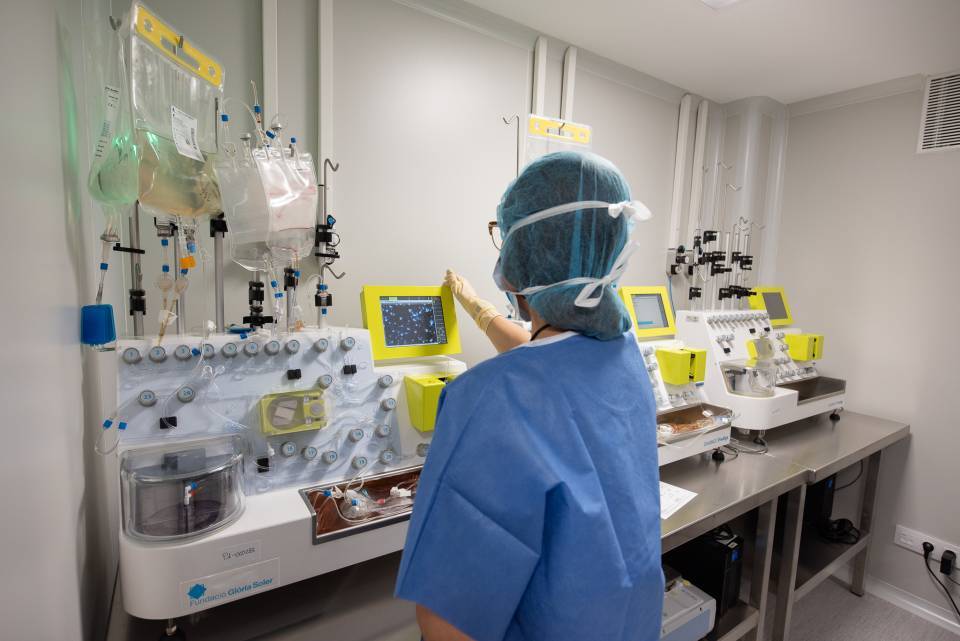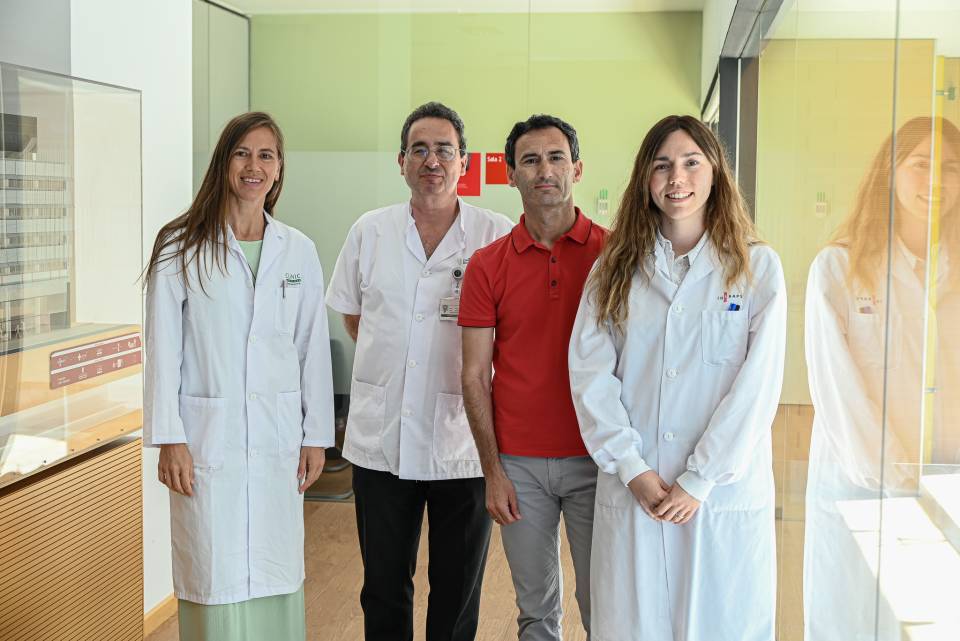At the Immunology Department, research has a translational focus. The aim is to improve basic knowledge in this field and to contribute proposals that improve the diagnosis and treatment of immunological diseases. The Department's researchers are also working to develop their own immunotherapies that will improve the diagnosis and quality of life of patients with immune-mediated diseases.
The clinical and basic research activity of the Immunology Department is carried out at the August Pi i Sunyer Biomedical Research Institute (IDIBAPS), in the areas of Biological Aggression and Response Mechanisms and Biopathology and Respiratory, Cardiovascular and Renal Bioengineering. More specifically, in the following groups:
-
Immune receptors of the innate and adaptive system
The group includes different lines of research, which are coordinated with different objectives in order to improve both the diagnosis and treatment of different diseases.
On the one hand, the group focuses its efforts on improving knowledge of the genetic basis of immune diseases (especially autoimmune diseases). There are also lines of research developing different types of advanced therapies: cell immunotherapies that use cells as treatment, and genetic immunotherapies (directly targeting the genes responsible for the disease). These are aimed at both immune-based diseases and different types of cancer.
The most emblematic example of cell therapies, on which much of this group’s research is focused, are CAR T-cell therapies. In the case of cancer, the group aims to restore the anti-tumour response in patients, enabling them to control and even cure certain tumours. In contrast, in the case of autoimmune diseases, the desired effect is to reduce immunotolerance, preventing the immune system from attacking the body’s own structures.
-
Pathogenesis of autoimmune neuronal disorders
The main objective of the group is the study of autoimmune and inflammatory diseases at the neurological level, including multiple sclerosis, neuromyelitis optica spectrum disorders (NMOSD), optical neuritis, antibody-associated encephalitis and paraneoplastic neurological disorders related to cancer, etc.
The aim is to identify biomarkers that facilitate early and accurate diagnosis in order to provide prognostic value. Moreover, the group works to understand the immunological mechanisms that affect neuronal function.
The research combines clinical studies with patients and laboratory experiments using advanced techniques. Throughout the group’s history, new diseases have been described and diagnostic and treatment processes have been refined, contributing significantly to the understanding of the mechanisms involved. In addition, animal models have been developed that have made it possible to optimize therapeutic strategies.
-
Immunogenetics and immunotherapy in autoinflammatory and immune responses
This group carries out basic research that enables the development of new immunological strategies for treating infectious, autoimmune and oncological processes through a precise understanding of the receptors that regulate innate and adaptive immune responses in situations of health and disease. Over the last ten years the group has published over 70 original and review articles in international peer-reviewed journals, produced eight doctoral theses, two spin-offs, and three international patents.
-
Clinical and experimental respiratory immunoallergy
This group is made up of a multidisciplinary team of professionals who contribute their knowledge of both day-to-day clinical practice with patients and the laboratory diagnostic process and the mechanisms involved in the disease. It focuses on evaluating the anti-inflammatory potential of new drugs, understanding the pathophysiology of certain clinical problems (asthma, rhinosinusitis, food allergies, urticarial, NSAID intolerance) and the mechanism of action of existing medications (corticosteroids, biological drugs) and new therapies (post-traumatic olfactory training and cell therapy).
The prevalence of some of these diseases is very high. In fact, allergic diseases affect one third of the world’s population, a fact to be considered when measuring the impact of initiatives to expand knowledge in this area.
The cross-disciplinary nature of immunology means that research contributions extend to other areas and groups, even outside IDIBAPS, with notable activity in fields such as immunodeficiencies and autoimmune or infectious diseases.


